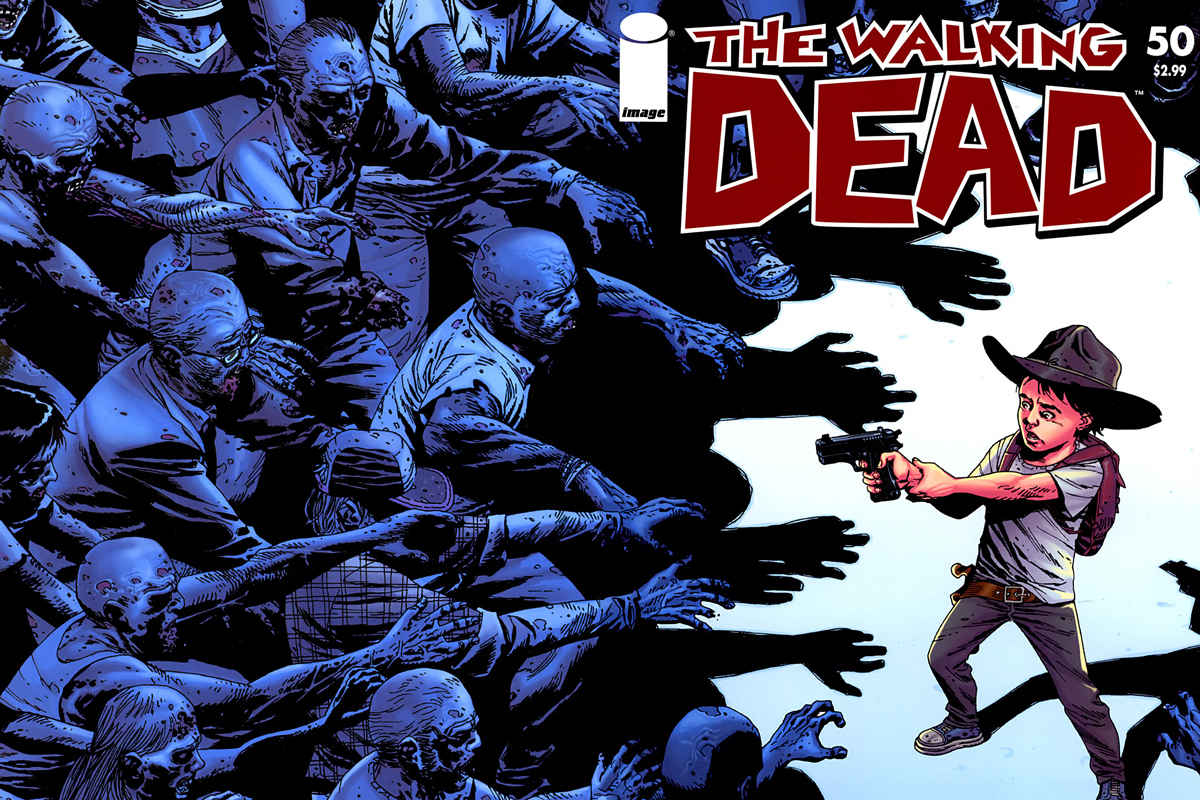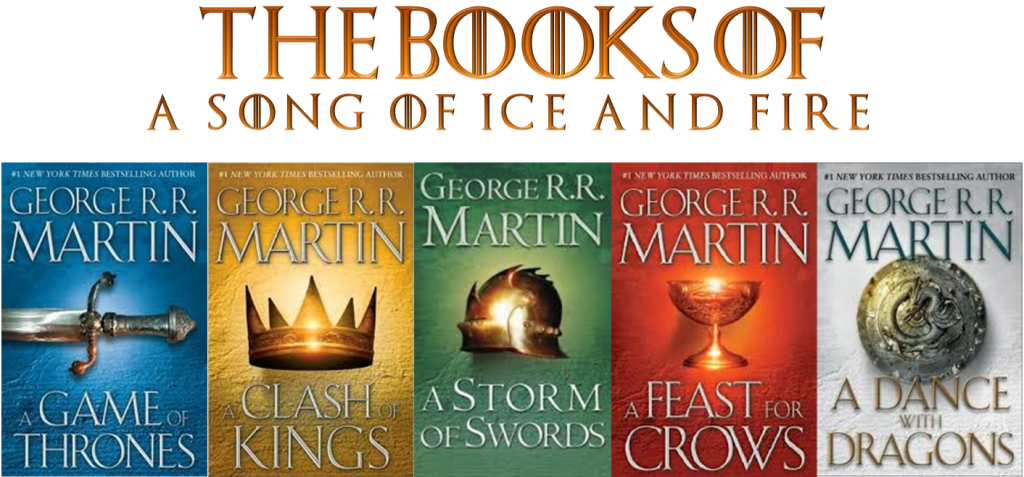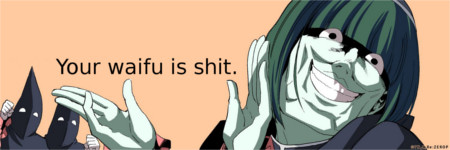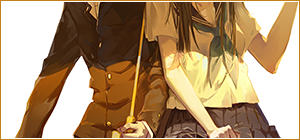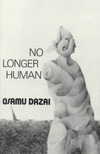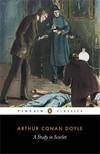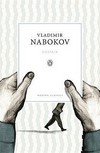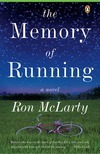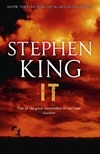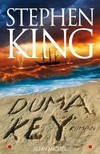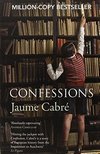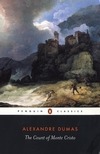New
May 10, 2016 2:18 PM
#1
| I never thought I would run out of books to read, but... I did. No manga please, I've got enough of that XD |
May 10, 2016 2:31 PM
#3
The red rising trilogy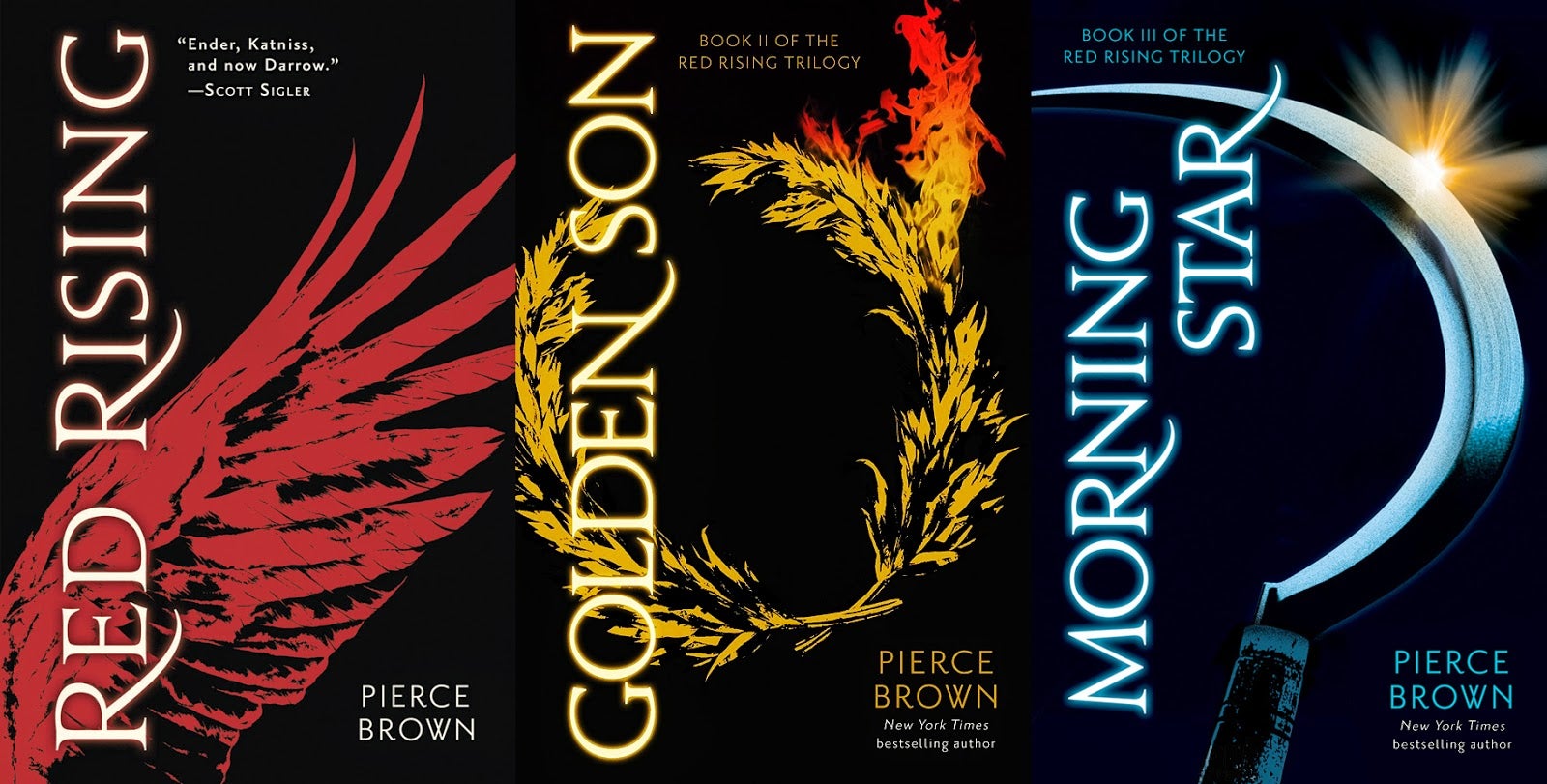 |
May 10, 2016 2:46 PM
#5
No, I haven't, but I just read a preview online and it seems very good! Thanks! |
May 10, 2016 7:16 PM
#6
I'm going to second this. Golden Son, in particular, is one of my absolute favorite books and nearly perfect in my eyes. Red Rising takes a few chapters to really get going, and the end of Morning Star was a little disappointing for me personally, but they're both fantastic books I would recommend to anyone. I really hope we get a few more books set in the Red Rising universe. Pierce Brown is a very talented writer. |
May 10, 2016 8:21 PM
#9
| Chronicles of the Emerged World |
| oh u wanna fight. CAPS LOCK ENGAGE |
May 10, 2016 8:25 PM
#10
| Battle Royale is amazing and originally comes from Japan, plus you can read the manga and watch the movie afterwards to see how they all compare to the original novel. |
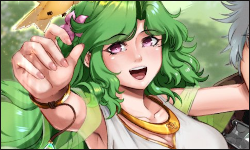 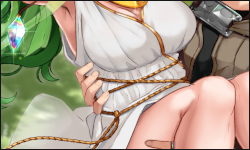  I envy your delusion; I wish I could live in it |
May 10, 2016 8:50 PM
#11
| If you're looking for an interesting romance novel, I highly recommend reading "Everyday" by David Levithan It does not follow the usual boy meets girl scenario, but more of "an entity" meets girl. Check it out haha |
 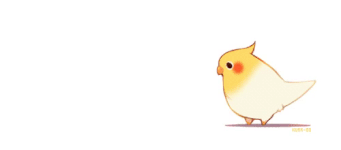 |
May 11, 2016 2:06 AM
#12
KingSwisher said: I'm going to second this. Golden Son, in particular, is one of my absolute favorite books and nearly perfect in my eyes. Red Rising takes a few chapters to really get going, and the end of Morning Star was a little disappointing for me personally, but they're both fantastic books I would recommend to anyone. I really hope we get a few more books set in the Red Rising universe. Pierce Brown is a very talented writer. He's making a new trilogy called "Iron Gold" coming out next year which takes place after Morning Star |
May 11, 2016 3:08 AM
#14
| Nailbiter is solid if you're into graphic novels / comics in the horror/investigation genre ! <:) |
May 11, 2016 4:03 AM
#15
| Roadside Picnic Pls its so good |
May 11, 2016 4:41 AM
#16
| For anime-fans, perhaps Haruki Murakami would be a nice trip. I'm recommending Kafka on the Shore. Or Wind-up bird chronicle. |
| "The biggest communication problem is we do not listen to understand. We listen to reply." - Unknown |
May 11, 2016 4:58 AM
#17
| His Dark Materials series by Philip Pullman Salmonella Men on Planet Porna by Yasutaka Tsutui (the guy who wrote Paprika ) Warm Bodies by Isaac Marion Gone Girl by Gillian Flynn The Book Thief by Markus Zusak The Ocean at the end of the Lane by Neil Gaiman All these books are kinda different. I hope you find something to read in there. Some users have mentioned Haruki Murakami. Kafka on the shore and Norwegian wood are pretty good |
| I HAVE TWO RULES: RULE ONE: I'M ALWAYS RIGHT RULE TWO: IF I'M WRONG, REFER TO RULE ONE... |
May 11, 2016 7:44 AM
#18
| The Queen of the South by Arturo Perez Reverte It is awesome, very well written and good character development |
May 11, 2016 1:57 PM
#19
_Hans_ said: He's making a new trilogy called "Iron Gold" coming out next year which takes place after Morning Star Nice. I can't wait for the next book then. It'll be interesting to see where the story goes from there. I hope there's more Sevro. He's easily my favorite character in the series. |
May 11, 2016 2:50 PM
#20
May 11, 2016 5:16 PM
#21
| Wheel of Time by Robert Jordan A Song of Ice and Fire by George R.R Martin The Lord of the Rings by J.R.R Tolkien The Chronicles of Narnia by C. S. Lewis Outlander Series by Diana Gabaldon The Bride of Lammermoor by Sir Walter Scott Ivanhoe by Sir Walter Scott The Complete Sherlock Holmes by Sir Arthur Conan Doyle The Witcher by Andrzej Sapkowski Odyssey by Homer Iliad by Homer Twenty Thousand Leagues Under the Sea by Jules Verne The Kingkiller Chronicle by Patrick Rothfuss |
 "Let the Dragon ride again on the winds of time." |
May 11, 2016 6:58 PM
#22
| The Malazan Book of the Fallen by Steven Erickson The First Law Trilogy (can't remember the author's name) The Gentleman Bastards series by Scott Lynch |
| "Let Justice Be Done!" My Theme Fight again, fight again for justice! |
May 12, 2016 3:35 AM
#23
| Roadsice picnic (Stalker) and The Inhabited Island by Boris & Arkadi Strougatski |
 |
May 12, 2016 3:59 AM
#24
| I just finished Just Kids by Patti Smith. It's a good read especially if you're a music, literature and/or poetry nerd. Also have you heard of goodreads.com? Great site to find new books to read. |
May 15, 2016 12:01 AM
#25
| No Country For Old Men, if you already haven't. |
May 15, 2016 11:36 AM
#26
| 1984 by George Orwell is a worthwhile read. I'd also suggest reading Metro 2033 by Dmitri Glukhovsky as well. The game was based off of the novel, and it's a very engrossing read with a rich athmosphere. |
May 16, 2016 4:35 AM
#27
| The Picture of Dorian Gray So good; simply stroking its hardcover turns me on. |
| If you're reading this, then you be should banana the one often to effectively die apples through convergence, autism plus unicorns. |
May 16, 2016 6:22 AM
#28
| Read And then there were none (originally ten little niggers) by Agatha Christie. Her magnum opus imo, and a must-read if you like the mystery genre. The lord of the rings trilogy by Tolkien, a masterpiece of the fantasy genre. A song of ice and fire by GRRM. Lord of the rings + sex, politics and dragons. Also better than the show. Leo Tolstoy's war and peace is also a very interesting and enjoyable read, if you have the time for it. Anna Karenina is another great book from him. Read Khaled Hosseini's kite runner and a thousand splendid suns, both wonderful books which focus on the effect the soviet invasion had on the lives of Afghans. Read all of Charles Dickens's works if you haven't already. Tom Hardy's works are also pretty good like Tess of the d'urbervilles and The mayor of casterbridge. If you want a horror book, read books that old hollywood movies are adapted from like Dracula, Frankenstein. Try to read a few of Edgar Allan Poe's short stories, or any horror novel by Stephen King. I blame his novel 'IT' for my coulrophobia. |
InsaniusMay 16, 2016 6:50 AM
May 16, 2016 8:14 AM
#29
| ^ I recommend Tolstoy's War & Peace, also. |
May 16, 2016 8:36 AM
#30
Kuro-Sama1 said: 1984 by George Orwell is a worthwhile read. I'd also suggest reading Metro 2033 by Dmitri Glukhovsky as well. The game was based off of the novel, and it's a very engrossing read with a rich athmosphere. Glukhovsky's Futu.re is also pretty good. Orwell's books are fantastic, I especially recommend Keep the Aspidistra Flying and Animal Farm. I'd also suggest reading Aldous Huxley's Brave New World. All of the greatest dystopian future worlds, yay. |
May 16, 2016 8:48 AM
#31
| Animal Farm, the trial, faust, fight club (book), infinite jest (heard it's good, but haven't read it so far). i would always try to read classics of literature first. modern books usually suck (e.g. stephen king) personally i always pick a book from the list below, go to amazon, read a few pages and if it's good, buy it 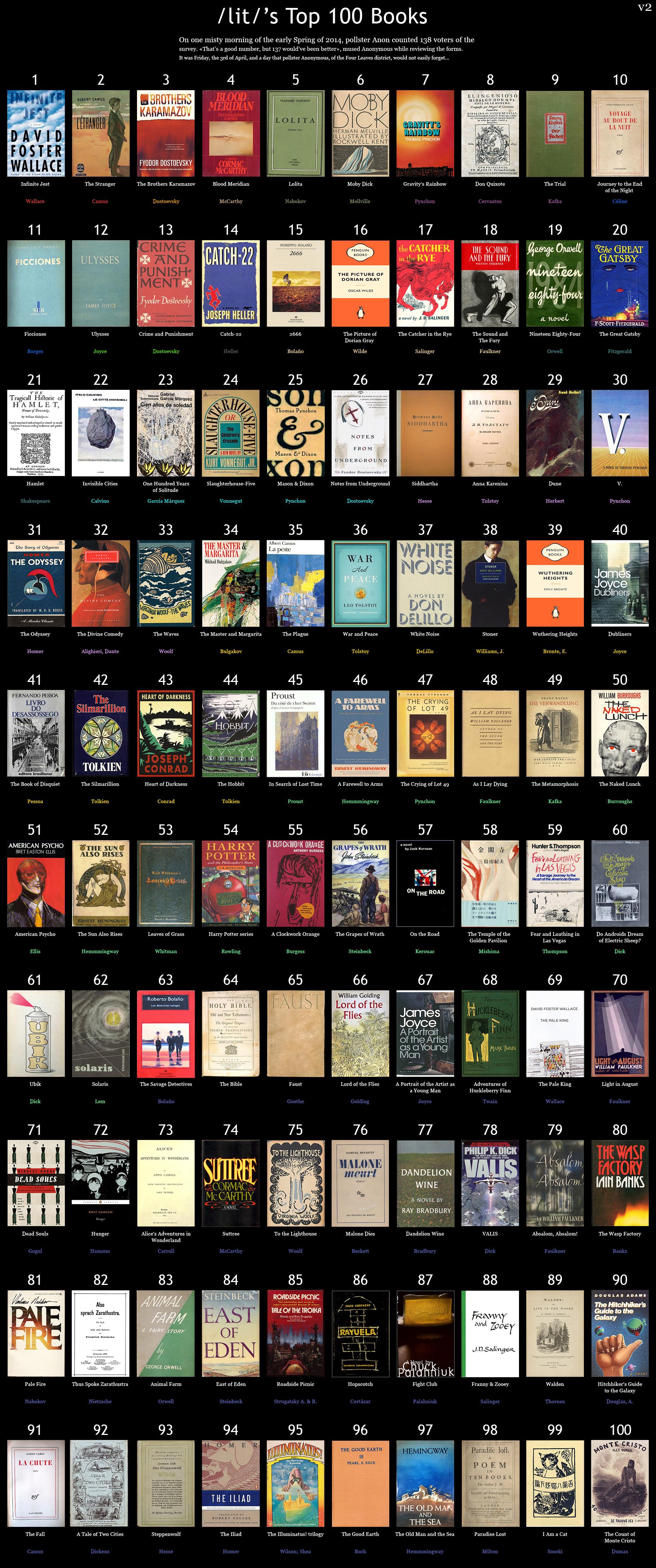 |
 |
May 16, 2016 9:11 AM
#32
| I will just recommend something out of the box, Mother of Learning. Excellent world building and magic system, ranked within top 100 fantasy novels in reddit. |
May 16, 2016 9:20 AM
#33
strider98 said: I will just recommend something out of the box, Mother of Learning. Excellent world building and magic system, ranked within top 100 fantasy novels in reddit. There's a reddit novel ranking? Also is this from r/lightnovels or r/noveltranslations? OT: I Shall Seal The Heavens. The funniest trio (Lord Fifth, Meat Jelly and Patriarch Reliance alone makes this a worthy read). |
May 16, 2016 9:28 AM
#34
hoopla123 said: strider98 said: I will just recommend something out of the box, Mother of Learning. Excellent world building and magic system, ranked within top 100 fantasy novels in reddit. There's a reddit novel ranking? Also is this from r/lightnovels or r/noveltranslations? OT: I Shall Seal The Heavens. The funniest trio (Lord Fifth, Meat Jelly and Patriarch Reliance alone makes this a worthy read). Neither, it's r/fantasy. https://www.reddit.com/r/Fantasy/comments/4f1jfj/the_2016_top_rfantasy_novels_poll_results/ . Worth a shot for you though, it has an excellent magic system like MT. |
May 16, 2016 9:41 AM
#35
strider98 said: hoopla123 said: strider98 said: I will just recommend something out of the box, Mother of Learning. Excellent world building and magic system, ranked within top 100 fantasy novels in reddit. There's a reddit novel ranking? Also is this from r/lightnovels or r/noveltranslations? OT: I Shall Seal The Heavens. The funniest trio (Lord Fifth, Meat Jelly and Patriarch Reliance alone makes this a worthy read). Neither, it's r/fantasy. https://www.reddit.com/r/Fantasy/comments/4f1jfj/the_2016_top_rfantasy_novels_poll_results/ . Worth a shot for you though, it has an excellent magic system like MT. Oh I see. Never even knew the subreddit existed lol. I'll give it a go later on maybe. I have too much on my plate atm reading Wuxia/Xinxia Novels and Saekano volume 8. |
May 16, 2016 9:48 AM
#36
| If your looking for fiction you should check out William Gibson's "Neuromancer" It can be a tough read, but it's fairly short and super immersive. Considered to be one of the best cyberpunk novels of all time. Also Matt Taibbi's "The Divide" is what I'm currently reading. It's primarily about the wealth gap in america as well as the atrociously rigged law system we have. Really interesting read if non-fiction is your thing. |
 |
May 16, 2016 9:58 AM
#37
| I don't read much fiction so here are my non-fictional suggestions: The Book of Disquiet - Fernando Pessoa The Prophet - Khalil Gibran Masnavi - Rumi Inspirations - Paulo Coelho (it's an anthology -- best way to look for good books) Epistemophilic said: Read And then there were none (originally ten little niggers) by Agatha Christie. Her magnum opus imo, and a must-read if you like the mystery genre. The lord of the rings trilogy by Tolkien, a masterpiece of the fantasy genre. A song of ice and fire by GRRM. Lord of the rings + sex, politics and dragons. Also better than the show. Leo Tolstoy's war and peace is also a very interesting and enjoyable read, if you have the time for it. Anna Karenina is another great book from him. Read Khaled Hosseini's kite runner and a thousand splendid suns, both wonderful books which focus on the effect the soviet invasion had on the lives of Afghans. Read all of Charles Dickens's works if you haven't already. Tom Hardy's works are also pretty good like Tess of the d'urbervilles and The mayor of casterbridge. If you want a horror book, read books that old hollywood movies are adapted from like Dracula, Frankenstein. Try to read a few of Edgar Allan Poe's short stories, or any horror novel by Stephen King. I blame his novel 'IT' for my coulrophobia. Frankenstein is, quite frankly, shit. I expected so much and got nothing more than a beautiful prose with no substance. There was no dilemma much less any horror. Not sure about Dracula though. I wanted to read that but you know my procrastination habits. By the way, do you have a pdf to Leo Tolstoy's Childhood, Boyhood and Adulthood? |
TranceMay 16, 2016 10:01 AM
May 16, 2016 10:15 AM
#38
Trance- said: Frankenstein is, quite frankly, shit. I expected so much and got nothing more than a beautiful prose with no substance. There was no dilemma much less any horror. Not sure about Dracula though. I wanted to read that but you know my procrastination habits. By the way, do you have a pdf to Leo Tolstoy's Childhood, Boyhood and Adulthood? Frankenstein isn't particularly scary, I'll admit that. But it isn't meant to frighten, I think. I enjoyed this book, which ultimately questions what it is to be human. Every book that has been written about artificial intelligence since Frankenstein owes something to Mary Shelley. I found the relationship between monster and creator compelling and fascinating. I liked the fact that although Frankenstein sees his monster as a brutal demon, the book allows readers to see events from the monster's perspective. I expect you disliked it because you expected yourself to be scared by it. Try reading Dracula, no adaptation does justice to Bram Stoker's book. All of Tolstoy's works |
May 16, 2016 10:17 AM
#39
| If you like sci-fi/paranormal, I absolutely recommend you the Juliëtte-Trilogy / Tahereh Mafi |
May 16, 2016 10:28 AM
#40
Epistemophilic said: Trance- said: Frankenstein is, quite frankly, shit. I expected so much and got nothing more than a beautiful prose with no substance. There was no dilemma much less any horror. Not sure about Dracula though. I wanted to read that but you know my procrastination habits. By the way, do you have a pdf to Leo Tolstoy's Childhood, Boyhood and Adulthood? Frankenstein isn't particularly scary, I'll admit that. But it isn't meant to frighten, I think. I enjoyed this book, which ultimately questions what it is to be human. Every book that has been written about artificial intelligence since Frankenstein owes something to Mary Shelley. I found the relationship between monster and creator compelling and fascinating. I liked the fact that although Frankenstein sees his monster as a brutal demon, the book allows readers to see events from the monster's perspective. I expect you disliked it because you expected yourself to be scared by it. Try reading Dracula, no adaptation does justice to Bram Stoker's book. All of Tolstoy's works I wasn't expecting to be scared. I was expecting a moral dilemma. Something which would make me question something. But the logical inconsistencies, the unwillingness of Victor to actually talk the matter through with the monster and reach a sensible compromise just made me question one thing: "Was Victor Frankenstein mentally retarded?". For one, how the hell could he not notice the ugliness of his own creation while he was creating and only noticed how ugly it was once animated? Then if he really did create the monster, he should have been perfectly aware of the functions he instilled in him. There was no need for him to react like that to the monster's awakening unless he drilled it into him to be a mindless beast. Then the moral dilemma which was supposed to be a moral dilemma was simply this: If you rear an ugly child, do you just abandon him? That's not a dilemma because either answer can be justified depending on your own moral constitution. The common answer would be, 'No'. And the reasoning for that obvious. Where was the moral 'dilemma' then? Thanks for the link btw. |
May 16, 2016 10:46 AM
#41
Trance- said: Epistemophilic said: Trance- said: Frankenstein is, quite frankly, shit. I expected so much and got nothing more than a beautiful prose with no substance. There was no dilemma much less any horror. Not sure about Dracula though. I wanted to read that but you know my procrastination habits. By the way, do you have a pdf to Leo Tolstoy's Childhood, Boyhood and Adulthood? Frankenstein isn't particularly scary, I'll admit that. But it isn't meant to frighten, I think. I enjoyed this book, which ultimately questions what it is to be human. Every book that has been written about artificial intelligence since Frankenstein owes something to Mary Shelley. I found the relationship between monster and creator compelling and fascinating. I liked the fact that although Frankenstein sees his monster as a brutal demon, the book allows readers to see events from the monster's perspective. I expect you disliked it because you expected yourself to be scared by it. Try reading Dracula, no adaptation does justice to Bram Stoker's book. All of Tolstoy's works I wasn't expecting to be scared. I was expecting a moral dilemma. Something which would make me question something. But the logical inconsistencies, the unwillingness of Victor to actually talk the matter through with the monster and reach a sensible compromise just made me question one thing: "Was Victor Frankenstein mentally retarded?". For one, how the hell could he not notice the ugliness of his own creation while he was creating and only noticed how ugly it was once animated? Then if he really did create the monster, he should have been perfectly aware of the functions he instilled in him. There was no need for him to react like that to the monster's awakening unless he drilled it into him to be a mindless beast. Then the moral dilemma which was supposed to be a moral dilemma was simply this: If you rear an ugly child, do you just abandon him? That's not a dilemma because either answer can be justified depending on your own moral constitution. The common answer would be, 'No'. And the reasoning for that obvious. Where was the moral 'dilemma' then? Thanks for the link btw. Victor's rejection of his "child" is based upon the fact that he had toiled night and day, at the cost of his own health and family, to give "birth" to his "son." Upon seeing his "son" come to life, the pieces which he chose for their beauty became horrifying to him. The pieces, sewn together, did not have the beauty they did when they existed as individual parts. Horrified by his "son," Victor flees from his flat. Later when he returns with Henry, Victor hopes that the creature is not there. Victor, with these hopes, alienates his "son." His concerns no longer lie in reanimating life. Instead, his concerns revolve around never seeing his "son" again. Essentially, Victor rejects his "child" because he considers it a catastrophe. I think his failure to stand by his choices is very humanizing. I don't at all mean that assessment positively; I mean just that it's normal to regret decisions, to back out of commitments. Now, to be fair, "backing out of commitments" becomes a lot more morally questionable when the commitment in question is your child. However, I do hesitate using the word "child" to refer to the monster. I know the monster reveres Frankenstein as his father, but does Frankenstein ever mention returning the sentiment? Victor throughout the assembly process never really thought of the creature as a child, but more like a project--it doesn't seem like Victor cared as much about what he would create as for the proof that he could create something in the first place. Which, again, I'd say is very hubristic of him. By the time the monster was able to communicate with Victor, things had gone too far. Victor was full of contempt for the monster for killing William, and it didn't help to know that he was indirectly responsible for his brother's death. Shelley is trying to illustrate that it is morally wrong to 'play god' like Victor has. He cannot justify this and he has made a terrible mistake, one which he wrongly does not try to fix. He leaves his creation, completely oblivious to the outside world, to fend for itself. Shelley believed science and technology were moving too swiftly during the industrial revolution so by showing the impact of this within Victor's experiment she is able to present what she believe to be morally wrong at the time. Society behaves immorally but this is unfix-able. Shelley shows it is ethically wrong to treat people so severely and can only lead to further misery. The creation only reacts in a unjust way as he feels trapped and forced to act like this through anger and frustration from such a cruel world and Victor's wrong doings. To be honest, there is no difficult moral dilemma here, it's more of a chronicle of Victor's psyche at various stages throughout the book. |
InsaniusMay 16, 2016 11:06 AM
May 16, 2016 11:17 AM
#42
cherryblossom519 said: I never thought I would run out of books to read, but... I did. No manga please, I've got enough of that XD It's difficult to suggest to someone a good book without knowing his/her taste.. so I'll just list some of my favourites! Political books: "Animal Farm" or "1984" (Orwell), Catch 22 (Haller), "To Kill a Mockinbird" (Harper), "If this is a Man" (Levi) Romantic yet historical books: "Pride and Prejudice" (Austen), "Captain Corelli's Mandolin" (De Bernières) Bildungsromans (novels of formation): Siddharta (Hesse), The Catcher in the Rye (Salinger) French: "Les misérables" (Hugo), "The Count of Monte Cristo" (Dumas), "La Fée Carabine" (Pennac), "Le Vol d'Icare" (Queneau) Russians: "The Master and Margarita" or "Heart of a Dog" (Bulgakov), "The Nose" (Gogol), "Crime and Punishment" (Dostoevskij) Americans: "Of Mice and Men" (Steinbeck), "The Martian Chronicles" (Bradbury) Et cetera.. I hope I could help you! ^_^ |
May 16, 2016 11:20 AM
#43
Epistemophilic said: Trance- said: Epistemophilic said: Trance- said: Frankenstein is, quite frankly, shit. I expected so much and got nothing more than a beautiful prose with no substance. There was no dilemma much less any horror. Not sure about Dracula though. I wanted to read that but you know my procrastination habits. By the way, do you have a pdf to Leo Tolstoy's Childhood, Boyhood and Adulthood? Frankenstein isn't particularly scary, I'll admit that. But it isn't meant to frighten, I think. I enjoyed this book, which ultimately questions what it is to be human. Every book that has been written about artificial intelligence since Frankenstein owes something to Mary Shelley. I found the relationship between monster and creator compelling and fascinating. I liked the fact that although Frankenstein sees his monster as a brutal demon, the book allows readers to see events from the monster's perspective. I expect you disliked it because you expected yourself to be scared by it. Try reading Dracula, no adaptation does justice to Bram Stoker's book. All of Tolstoy's works I wasn't expecting to be scared. I was expecting a moral dilemma. Something which would make me question something. But the logical inconsistencies, the unwillingness of Victor to actually talk the matter through with the monster and reach a sensible compromise just made me question one thing: "Was Victor Frankenstein mentally retarded?". For one, how the hell could he not notice the ugliness of his own creation while he was creating and only noticed how ugly it was once animated? Then if he really did create the monster, he should have been perfectly aware of the functions he instilled in him. There was no need for him to react like that to the monster's awakening unless he drilled it into him to be a mindless beast. Then the moral dilemma which was supposed to be a moral dilemma was simply this: If you rear an ugly child, do you just abandon him? That's not a dilemma because either answer can be justified depending on your own moral constitution. The common answer would be, 'No'. And the reasoning for that obvious. Where was the moral 'dilemma' then? Thanks for the link btw. Victor's rejection of his "child" is based upon the fact that he had toiled night and day, at the cost of his own health and family, to give "birth" to his "son." Upon seeing his "son" come to life, the pieces which he chose for their beauty became horrifying to him. The pieces, sewn together, did not have the beauty they did when they existed as individual parts. Horrified by his "son," Victor flees from his flat. Later when he returns with Henry, Victor hopes that the creature is not there. Victor, with these hopes, alienates his "son." His concerns no longer lie in reanimating life. Instead, his concerns revolve around never seeing his "son" again. Essentially, Victor rejects his "child" because he considers it a catastrophe. I think his failure to stand by his choices is very humanizing. I don't at all mean that assessment positively; I mean just that it's normal to regret decisions, to back out of commitments. Now, to be fair, "backing out of commitments" becomes a lot more morally questionable when the commitment in question is your child. However, I do hesitate using the word "child" to refer to the monster. I know the monster reveres Frankenstein as his father, but does Frankenstein ever mention returning the sentiment? Victor throughout the assembly process never really thought of the creature as a child, but more like a project--it doesn't seem like Victor cared as much about what he would create as for the proof that he could create something in the first place. Which, again, I'd say is very hubristic of him. By the time the monster was able to communicate with Victor, things had gone too far. Victor was full of contempt for the monster for killing William, and it didn't help to know that he was indirectly responsible for his brother's death. Shelley is trying to illustrate that it is morally wrong to 'play god' like Victor has. He cannot justify this and he has made a terrible mistake, one which he wrongly does not try to fix. He leaves his creation, completely oblivious to the outside world, to fend for itself. Shelley believed science and technology were moving too swiftly during the industrial revolution so by showing the impact of this within Victor's experiment she is able to present what she believe to be morally wrong at the time. Society behaves immorally but this is unfix-able. Shelley shows it is ethically wrong to treat people so severely and can only lead to further misery. The creation only reacts in a unjust way as he feels trapped and forced to act like this through anger and frustration from such a cruel world and Victor's wrong doings. To be honest, there is no difficult moral dilemma here, it's more of a chronicle of Victor's psyche at various stages throughout the book. It is nigh conceivable for an intelligent man, that Victor was supposed to, to act like that. I can accept the explanation that he had no way of knowing how it would turn out but then again, there can be no answer to the question that a creator is supposed to be aware of the capabilities of his creation but what the hell was Victor smoking? And to run away like that, and then coming back wishing the monster's disappearance -- what kind of a joke is that? Let's say he got scared and ran away. Cool. But then he came back wishing that the monster should just disappear -- how?! sure he met with disappointment at the completion of his 'project' but a creator knowing perfectly well the capabilities of the creation cannot simply do that. And 'Victor was a human' is no argument. If he created the monster, he should also have known how to deconstruct it. Or if not deconstruct, then modify it. Then we have Victor's weak morals. He knew perfectly well the condition of his monster and what he could do. The demand the monster had put made perfect sense and it would take only a retard to reject that demand for a selfish gain such as 'revenge'. Maybe one can say that Victor's cognitive dissonance was at play here. Knowing perfectly well that he was in the wrong, he wanted to perceive the monster in the wrong light nonetheless. What baffles me, in all this, is that Victor didn't even feel guilty for ever abandoning the monster but only felt guilty for creating him. A character that selfish is nigh comic. You only see shit like that in anime. All in all, it may as well be said that Victor was the problem. But he was the central character for God's sake! and if he were the problem, then the whole plot is the problem. Shelley's irrational fear of a human playing God is based on a senseless individual of her own crafting who acted inhumanely (not in the ethical sense -- but in the 'sensibility' sense) not once but twice and thrice and so on. The whole novel is one long series of bad decisions taken by an irrational, nonsense, man who would serve a far better job in being the main character of a 3rd class anime where extremely annoying characters are actually appreciated by the dull-minded viewership. In a real scenario, considering an actual rational man, a man who would make sense from a human point of view as he should because he is capable of creating 'life', no matter how ugly the creation, how huge the disaster the project was, the man would know what to do: Either to mend it, or destroy it. The other thing that she tries to show could have been more profound if the premise made any sense to begin with. |
May 16, 2016 11:51 AM
#44
Trance- said: Epistemophilic said: Trance- said: Epistemophilic said: Trance- said: Frankenstein is, quite frankly, shit. I expected so much and got nothing more than a beautiful prose with no substance. There was no dilemma much less any horror. Not sure about Dracula though. I wanted to read that but you know my procrastination habits. By the way, do you have a pdf to Leo Tolstoy's Childhood, Boyhood and Adulthood? Frankenstein isn't particularly scary, I'll admit that. But it isn't meant to frighten, I think. I enjoyed this book, which ultimately questions what it is to be human. Every book that has been written about artificial intelligence since Frankenstein owes something to Mary Shelley. I found the relationship between monster and creator compelling and fascinating. I liked the fact that although Frankenstein sees his monster as a brutal demon, the book allows readers to see events from the monster's perspective. I expect you disliked it because you expected yourself to be scared by it. Try reading Dracula, no adaptation does justice to Bram Stoker's book. All of Tolstoy's works I wasn't expecting to be scared. I was expecting a moral dilemma. Something which would make me question something. But the logical inconsistencies, the unwillingness of Victor to actually talk the matter through with the monster and reach a sensible compromise just made me question one thing: "Was Victor Frankenstein mentally retarded?". For one, how the hell could he not notice the ugliness of his own creation while he was creating and only noticed how ugly it was once animated? Then if he really did create the monster, he should have been perfectly aware of the functions he instilled in him. There was no need for him to react like that to the monster's awakening unless he drilled it into him to be a mindless beast. Then the moral dilemma which was supposed to be a moral dilemma was simply this: If you rear an ugly child, do you just abandon him? That's not a dilemma because either answer can be justified depending on your own moral constitution. The common answer would be, 'No'. And the reasoning for that obvious. Where was the moral 'dilemma' then? Thanks for the link btw. Victor's rejection of his "child" is based upon the fact that he had toiled night and day, at the cost of his own health and family, to give "birth" to his "son." Upon seeing his "son" come to life, the pieces which he chose for their beauty became horrifying to him. The pieces, sewn together, did not have the beauty they did when they existed as individual parts. Horrified by his "son," Victor flees from his flat. Later when he returns with Henry, Victor hopes that the creature is not there. Victor, with these hopes, alienates his "son." His concerns no longer lie in reanimating life. Instead, his concerns revolve around never seeing his "son" again. Essentially, Victor rejects his "child" because he considers it a catastrophe. I think his failure to stand by his choices is very humanizing. I don't at all mean that assessment positively; I mean just that it's normal to regret decisions, to back out of commitments. Now, to be fair, "backing out of commitments" becomes a lot more morally questionable when the commitment in question is your child. However, I do hesitate using the word "child" to refer to the monster. I know the monster reveres Frankenstein as his father, but does Frankenstein ever mention returning the sentiment? Victor throughout the assembly process never really thought of the creature as a child, but more like a project--it doesn't seem like Victor cared as much about what he would create as for the proof that he could create something in the first place. Which, again, I'd say is very hubristic of him. By the time the monster was able to communicate with Victor, things had gone too far. Victor was full of contempt for the monster for killing William, and it didn't help to know that he was indirectly responsible for his brother's death. Shelley is trying to illustrate that it is morally wrong to 'play god' like Victor has. He cannot justify this and he has made a terrible mistake, one which he wrongly does not try to fix. He leaves his creation, completely oblivious to the outside world, to fend for itself. Shelley believed science and technology were moving too swiftly during the industrial revolution so by showing the impact of this within Victor's experiment she is able to present what she believe to be morally wrong at the time. Society behaves immorally but this is unfix-able. Shelley shows it is ethically wrong to treat people so severely and can only lead to further misery. The creation only reacts in a unjust way as he feels trapped and forced to act like this through anger and frustration from such a cruel world and Victor's wrong doings. To be honest, there is no difficult moral dilemma here, it's more of a chronicle of Victor's psyche at various stages throughout the book. It is nigh conceivable for an intelligent man, that Victor was supposed to, to act like that. I can accept the explanation that he had no way of knowing how it would turn out but then again, there can be no answer to the question that a creator is supposed to be aware of the capabilities of his creation but what the hell was Victor smoking? And to run away like that, and then coming back wishing the monster's disappearance -- what kind of a joke is that? Let's say he got scared and ran away. Cool. But then he came back wishing that the monster should just disappear -- how?! sure he met with disappointment at the completion of his 'project' but a creator knowing perfectly well the capabilities of the creation cannot simply do that. And 'Victor was a human' is no argument. If he created the monster, he should also have known how to deconstruct it. Or if not deconstruct, then modify it. Then we have Victor's weak morals. He knew perfectly well the condition of his monster and what he could do. The demand the monster had put made perfect sense and it would take only a retard to reject that demand for a selfish gain such as 'revenge'. Maybe one can say that Victor's cognitive dissonance was at play here. Knowing perfectly well that he was in the wrong, he wanted to perceive the monster in the wrong light nonetheless. What baffles me, in all this, is that Victor didn't even feel guilty for ever abandoning the monster but only felt guilty for creating him. A character that selfish is nigh comic. You only see shit like that in anime. All in all, it may as well be said that Victor was the problem. But he was the central character for God's sake! and if he were the problem, then the whole plot is the problem. Shelley's irrational fear of a human playing God is based on a senseless individual of her own crafting who acted inhumanely (not in the ethical sense -- but in the 'sensibility' sense) not once but twice and thrice and so on. The whole novel is one long series of bad decisions taken by an irrational, nonsense, man who would serve a far better job in being the main character of a 3rd class anime where extremely annoying characters are actually appreciated by the dull-minded viewership. In a real scenario, considering an actual rational man, a man who would make sense from a human point of view as he should because he is capable of creating 'life', no matter how ugly the creation, how huge the disaster the project was, the man would know what to do: Either to mend it, or destroy it. The other thing that she tries to show could have been more profound if the premise made any sense to begin with. There was no chance that Victor would bargain with the monster. To Victor he was just that and nothing more - a monster. Victor's belief that the monster was inherently vicious and violent was reinforced when he killed William. Victor could never forgive the monster after that, and by killing the monster's bride, Victor attempted to inflict some of the pain that he felt after Williams's death on the monster. He took away something the monster loved, just as the monster took away William. To Victor, the monster was a thing of evil, hideous. Why would he regret abandoning it? It was nothing but a disgusting creature with blood lust. Victor felt he was justified in abandoning the monster because he didn't know about the sensitive side of the monster. Later when they met, it would seem to Victor that the monster would just be using him to get something that it wants. Victor isn't selfish, but wrong in judging the monster to be evil by it's appearance. You see, there was nothing wrong with the monster except for it's appearance. There was nothing to 'mend'. Victor made bad decisions, but they weren't irrational from his perspective. I think the monster's appearance threw all the sensibility out of Victor. Victor could have destroyed the monster there and then, but there was no good reason for spoiling months of hard work over almost nothing. The monster was innocent, it was just his appearance that repulsed Victor. His fear led to him making bad decisions, which led to the monster's murders. |
May 16, 2016 12:06 PM
#45
Epistemophilic said: There was no chance that Victor would bargain with the monster. To Victor he was just that and nothing more - a monster. Victor's belief that the monster was inherently vicious and violent was reinforced when he killed William. Victor could never forgive the monster after that, and by killing the monster's bride, Victor attempted to inflict some of the pain that he felt after Williams's death on the monster. He took away something the monster loved, just as the monster took away William. To Victor, the monster was a thing of evil, hideous. Why would he regret abandoning it? It was nothing but a disgusting creature with blood lust. Victor felt he was justified in abandoning the monster because he didn't know about the sensitive side of the monster. Later when they met, it would seem to Victor that the monster would just be using him to get something that it wants. Victor isn't selfish, but wrong in judging the monster to be evil by it's appearance. You see, there was nothing wrong with the monster except for it's appearance. There was nothing to 'mend'. Victor made bad decisions, but they weren't irrational from his perspective. I think the monster's appearance threw all the sensibility out of Victor. Victor could have destroyed the monster there and then, but there was no good reason for spoiling months of hard work over almost nothing. The monster was innocent, it was just his appearance that repulsed Victor. His fear led to him making bad decisions, which led to the monster's murders. If Victor wanted to inflict pain on the monster, he should have known that he had already done so. Regardless, if it takes this much rationalization to get around the central point, then there must definitely be something wrong -- and there is. A lot of things, actually. Victor's utterly incomprehensible behavior just defeats the purpose of exposing the dangers of 'playing God' for it could easily be asserted that if Victor were a little more of a rational being, or had he taken some better decisions, a productive creator-creation relationship may had come about. I could write this entire story replacing Victor with a bad father and the monster with an ugly child and the entire blame would still fall on the father. It's just a story of bad parenting. Not a moral dilemma espousing the follies of playing God. |
May 16, 2016 12:22 PM
#46
michiyume said: cherryblossom519 said: I never thought I would run out of books to read, but... I did. No manga please, I've got enough of that XD It's difficult to suggest to someone a good book without knowing his/her taste.. so I'll just list some of my favourites! Political books: "Animal Farm" or "1984" (Orwell), Catch 22 (Haller), "To Kill a Mockinbird" (Harper), "If this is a Man" (Levi) Romantic yet historical books: "Pride and Prejudice" (Austen), "Captain Corelli's Mandolin" (De Bernières) Bildungsromans (novels of formation): Siddharta (Hesse), The Catcher in the Rye (Salinger) French: "Les misérables" (Hugo), "The Count of Monte Cristo" (Dumas), "La Fée Carabine" (Pennac), "Le Vol d'Icare" (Queneau) Russians: "The Master and Margarita" or "Heart of a Dog" (Bulgakov), "The Nose" (Gogol), "Crime and Punishment" (Dostoevskij) Americans: "Of Mice and Men" (Steinbeck), "The Martian Chronicles" (Bradbury) Et cetera.. I hope I could help you! ^_^ That did help, thank you :) |
May 16, 2016 12:24 PM
#47
Trance- said: Epistemophilic said: There was no chance that Victor would bargain with the monster. To Victor he was just that and nothing more - a monster. Victor's belief that the monster was inherently vicious and violent was reinforced when he killed William. Victor could never forgive the monster after that, and by killing the monster's bride, Victor attempted to inflict some of the pain that he felt after Williams's death on the monster. He took away something the monster loved, just as the monster took away William. To Victor, the monster was a thing of evil, hideous. Why would he regret abandoning it? It was nothing but a disgusting creature with blood lust. Victor felt he was justified in abandoning the monster because he didn't know about the sensitive side of the monster. Later when they met, it would seem to Victor that the monster would just be using him to get something that it wants. Victor isn't selfish, but wrong in judging the monster to be evil by it's appearance. You see, there was nothing wrong with the monster except for it's appearance. There was nothing to 'mend'. Victor made bad decisions, but they weren't irrational from his perspective. I think the monster's appearance threw all the sensibility out of Victor. Victor could have destroyed the monster there and then, but there was no good reason for spoiling months of hard work over almost nothing. The monster was innocent, it was just his appearance that repulsed Victor. His fear led to him making bad decisions, which led to the monster's murders. If Victor wanted to inflict pain on the monster, he should have known that he had already done so. Regardless, if it takes this much rationalization to get around the central point, then there must definitely be something wrong -- and there is. A lot of things, actually. Victor's utterly incomprehensible behavior just defeats the purpose of exposing the dangers of 'playing God' for it could easily be asserted that if Victor were a little more of a rational being, or had he taken some better decisions, a productive creator-creation relationship may had come about. I could write this entire story replacing Victor with a bad father and the monster with an ugly child and the entire blame would still fall on the father. It's just a story of bad parenting. Not a moral dilemma espousing the follies of playing God. Sigmund Freud’s ideas of psychoanalysis and psychiatry include the idea that the human mind is essentially dual in nature. One part of the psyche, known as the ‘id’ is “passionate, irrational, unknown, and unconscious,” and the other part, the ‘ego,’ is “rational, logical, orderly, and conscious.”* Keeping this in mind, I’d like to make the case that Frankenstein is a story of these two natures, of the duality of mankind, and that as a creator, Victor Frankenstein shows himself to represent the ‘id’, acting irrationally and solely to satisfy his own passions, disregarding consequences, while simultaneously creating a manifestation of the ‘ego’ through the monster, representing this second part of the dual psyche. It is clear that Victor Frankenstein was passionate about science, and his studies and his ideas etc, and I think it is appropriate to say that this passion played out in the irrationality of creating a new being. Throughout the whole process of Victor creating the monster, he repeatedly says how he is driven by excitement, enthusiasm, this passionate pursuit to create a human life. When he explains to the reader why he is doing this, never gives a rational reason for doing so other than the excitement of taking his science to the next level. He even mentions that he changes his original intention and decides to create a massive being, 8-feet tall, another irrational decision as creating a smaller being and bringing that to life would prove his research just as well. His act of creating was driven by impulse, passion, all representing the ego. In this irrationality, however, what Frankenstein did in creating the monster was to create a physical being that represented the second part of the dual psyche, the id. When you think about some of the things that the monster did and said throughout the novel, he often acted and spoke with a voice of reason, the rational character between creator and creation. Take for example the monster’s request for a female companion. It is truly a rational request, and the way in which he expresses it to Frankenstein, as well as his telling to his creator how Frankenstein is to blame for the monster’s crimes, relates logical, well-thought reason He is right—it is Victor’s duty as his creator to provide him with the happiness that he had been previously denied. Other actions of the monster also show signs of rationality that Frankenstein lacked. After he realized his affect on people, he waited for the right time and setting to confront Lacey. He spent his time in seclusion not mourning, but learning the language and things he knew he would need to survive. On the flip side, Victor shows time and time again his irrational thought and behavior. As was previously mentioned, clearly his obsession with exploring the unknown led to the irrationality of making the monster. It was irrational not to take the monster’s threats seriously, irrational to abandon the monster after creating it, thereby leaving what was essentially a newborn to its own devices. He didn’t think enough when he didn’t inform his family about the danger that he had brought to them, when he didn’t come forward and save Justine’s or Elizabeth’s life etc. Freud built on the idea that it is the mind that is dual in nature, and I think that is so clearly seen in Frankenstein. It was Victor Frankenstein’s mind that came up with the idea of the monster. And perhaps we can see rationality in the way he behaved at certain times,. But I think even more clearly we can see that his creation, the monster, was a physical manifestation of rationality and logical truth that Victor, perhaps lost, but was certainly blind to, when he created the monster. The monster was the other side of Victor’s mind, of Victor’s psyche, the rational ego to his creator’s irrational id. As a creator, Frankenstein was certainly passionate about what he was pursuing, but governed by his id as he was, he did not think it through. |
May 16, 2016 8:29 PM
#48
| There's a book series called Darkness Before Dawn, it's good if you like vampires |
May 16, 2016 8:41 PM
#49
BjorkIsJesus said: I just finished Just Kids by Patti Smith. It's a good read especially if you're a music, literature and/or poetry nerd. Also have you heard of goodreads.com? Great site to find new books to read. i loved that book. if you give a shit about musical history and the lives of influential artists, its a must read and i echo pride and prejudice. edit: brief shout out to 1Q84 and Murakami in general there are a lot of good suggestions here but so many overlooked novels can amaze you. i'm just too fucking lazy to post |
May 16, 2016 10:21 PM
#50
| @Epistemophilic One can look at it that way and it would make more sense. But that misses the point of the story being a moral dilemma expounding the dangers of playing God or extending scientific research. In other words, it remains a failure of a novel nonetheless. |
More topics from this board
» Currently listening to ( 1 2 3 4 5 ... Last Page )tsukareru - Mar 29, 2021 |
7588 |
by 3miL
»»
3 hours ago |
|
» Post songs that you are addicted to right nowtsukareru - Yesterday |
10 |
by JustOscar
»»
3 hours ago |
|
» What was the last song you listened to? ( 1 2 3 4 5 ... Last Page )Death - Oct 1, 2020 |
3388 |
by 3miL
»»
4 hours ago |
|
» This is one the most gay music vids i have seen^^tsukareru - Yesterday |
1 |
by Zettaiken
»»
9 hours ago |
|
» Favorite childhood TV shows?56709 - Apr 17 |
26 |
by 707supremacist
»»
Yesterday, 5:26 PM |
